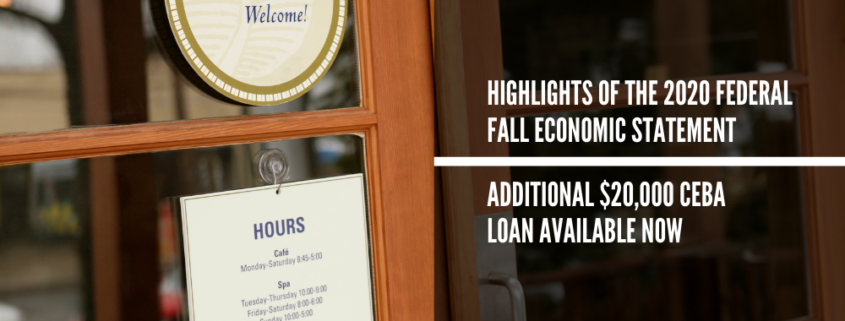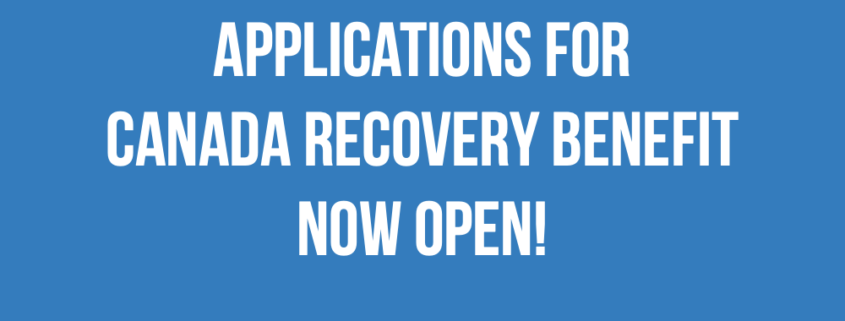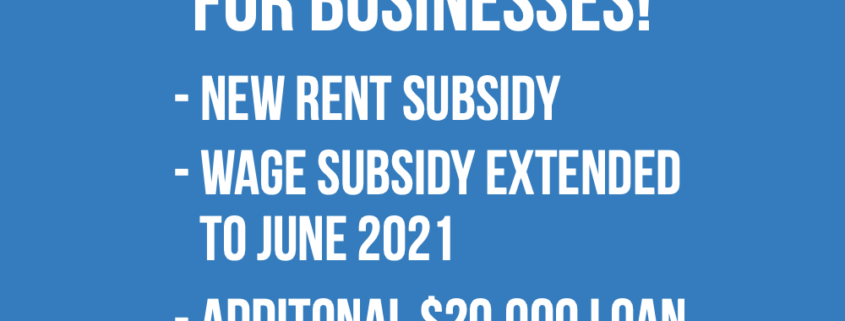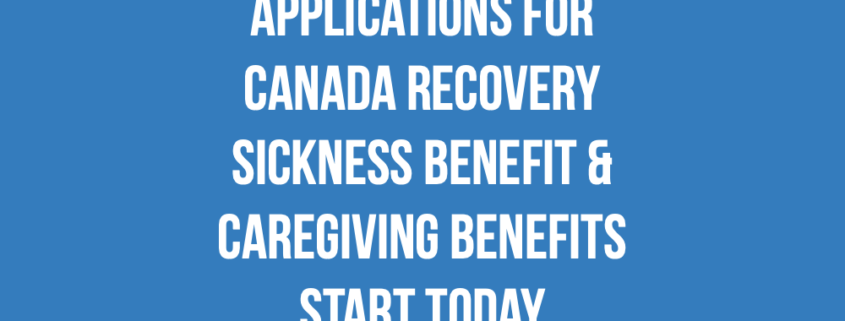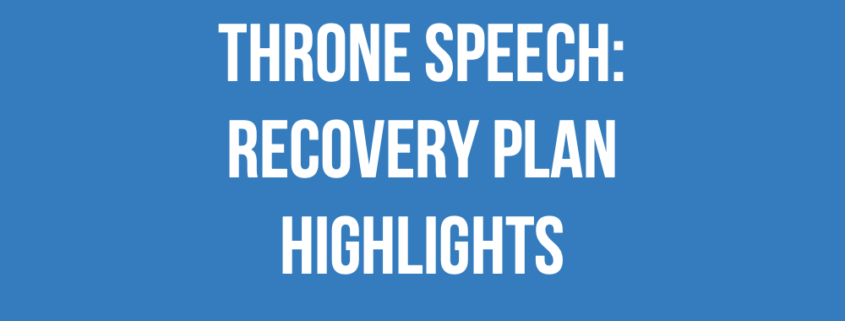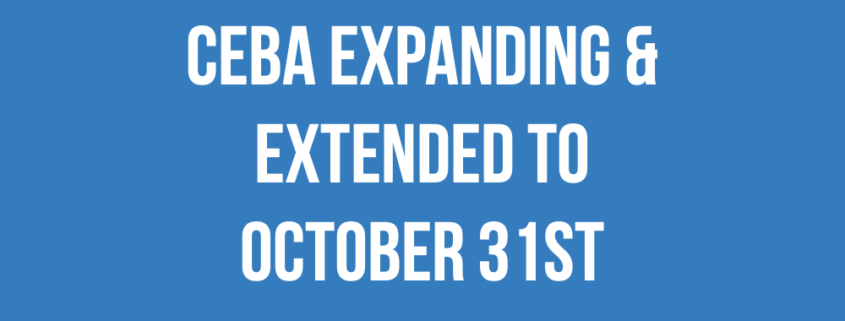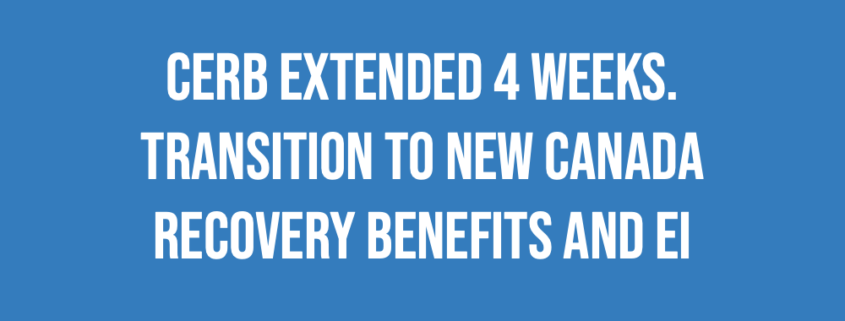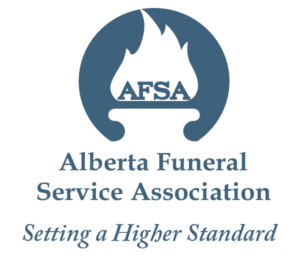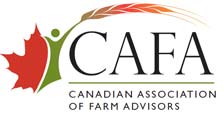CERB extended by 4 weeks
On August 20th, the Federal Government announced the extension of the Canada Emergency Response Benefit (CERB) by one month and the subsequent transition, on September 27th, to a simplified Employment Insurance (EI) Program for those who remain unable to work and are eligible.
Temporary revised EI benefit qualifications:
-
120 hours of work required to qualify
-
Minimum benefit rate of $400 per week
-
At least 26 weeks of regular benefits
Canada Recovery Benefit
Effective September 27th, 2020 for 1 year, the Canada Recovery Benefit will provide $400 / week for up to 26 weeks for those who are not eligible for EI, like self-employed and gig economy workers.
Eligibility from canada.ca:
“The benefit would be available to residents in Canada who:
-
are at least 15 years old and have a valid Social Insurance Number (SIN);
-
have stopped working due to the COVID-19 pandemic and are available and looking for work; or are working and have had a reduction in their employment/self-employment income for reasons related to COVID-19;
-
are not eligible for Employment Insurance;
-
had employment and/or self-employment income of at least $5,000 in 2019 or in 2020; and,
-
have not quit their job voluntarily.
Workers would apply after every two-week period for which they are seeking income support and attest that they continue to meet the requirements. In order to continue to be eligible for the benefit the claimant wound need to look for and accept work when it is reasonable to do so. The benefit is taxable.”
Canada Recovery Sickness Benefit
Effective September 27th, 2020 for 1 year, the new Canada Recovery Sickness Benefit will provide $500 / week for up to 2 weeks for workers who are unable to work because they are sick or must isolate due to COVID-19.
Eligibility from canada.ca:
“The benefit would be available to:
-
Residents in Canada who are at least 15 years of age and have a valid Social Insurance Number (SIN);
-
Workers employed or self-employed at the time of the application; and
-
Workers who earned at least $5,000 in 2019 or in 2020.
Workers would not be required to have a medical certificate to qualify for the benefit. Workers could not claim the Canada Recovery Sickness Benefit and receive other paid sick leave for the same benefit period. Workers would need to have missed a minimum of 60% of their scheduled work in the week for which they claim the benefit.
Workers would apply after the one-week period in which they are seeking income support and attest that they meet the requirements. The benefit would taxable.”
Canada Recovery Caregiving Benefit
Effective September 27th, 2020 for 1 year, the new Canada Recovery Caregiver Benefit will provide $500 / week for up to 26 weeks per household to eligible Canadians.
The news release from canada.ca, states that:
“The closure of schools and other daycare and day program facilities to prevent the spread of COVID 19 has meant that many Canadians have been unable to work because they needed to provide care to children or support to other dependents who had to stay home. While it is anticipated that facilities will gradually re-open as the economy restarts, the Government of Canada recognizes that access may vary over time and across communities. The Government is committed to ensuring that parents and others with dependents do not need to choose between caring for them and paying the bills.”
Eligibility from canada.ca:
In order to be eligible for the Canada Recovery Caregiving Benefit, individuals would need to:
-
reside in Canada;
-
be at least 15 years of age on the first day of the period for which they apply for the benefit;
-
have a valid Social Insurance Number;
-
be employed or self-employed on the day immediately preceding the period for which the application is made;
-
have earned at least $5,000 in 2019 or in 2020;
-
have been unable to work for at least 60% of their normally scheduled work within a given week because of one of the following conditions:
-
not be in receipt of paid leave from an employer in respect of the same week; and
-
not be in receipt of the CERB, the EI Emergency Response Benefit (ERB), the Canada Recovery Benefit, the Canada Recovery Sickness Benefit, short-term disability benefits, workers’ compensation benefits, or any EI benefits or Quebec Parental Insurance Plan (QPIP) benefits in respect of the same week.
Workers would apply after the period in which they are seeking income support and attest that they meet the requirements. Two members residing in the same household could not be in receipt of the benefit for the same period. The benefit is taxable.



